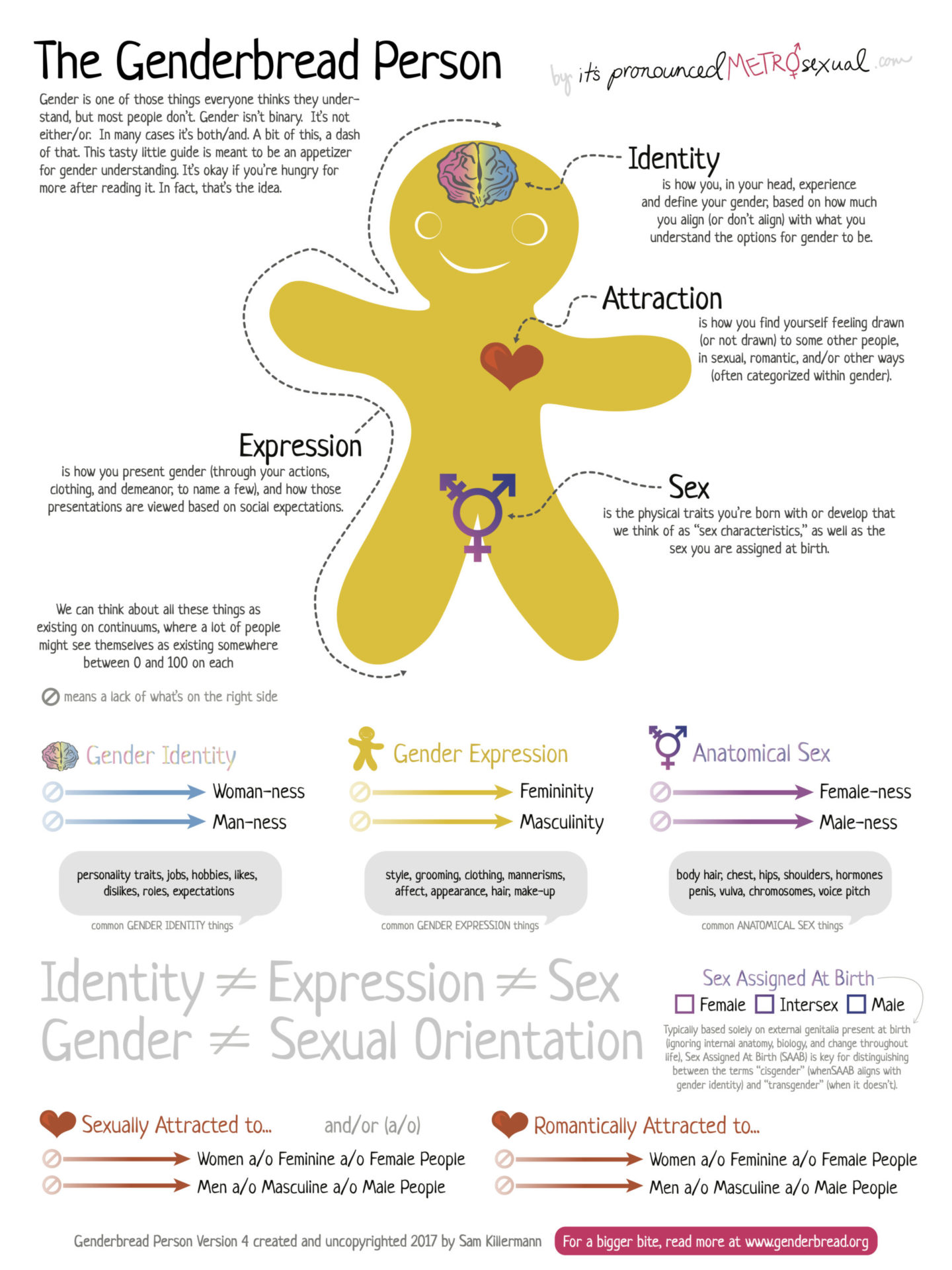
Study Abroad & LGBTQIA+ Identity
Whether you are a prospective participant, already enrolled, or a Verto alumni – we are thrilled to have you in the Verto Community! At Verto, we are committed to fostering community and embracing diversity in all of our locations – we value and welcome you for exactly the person that you are.
We acknowledge that aspects of all participants’ identities can bring challenges, questions, and opportunities both when entering a new community and especially while immersing in a new culture. Our Pre-Departure Guides are intended to be a resource for you as you embark on this journey.
Fostering an LGBTQIA+ Study Abroad Community
LGBTQIA+ students have previously participated and thrived in every location offered by Verto Education. This guide is intended to give you information, context, and perspective as you prepare for your study abroad experience with Verto.
It’s important to note that this guide does not mean to overgeneralize or oversimplify the complex experiences that participants can and will have. We acknowledge that all participants have intersectional identities – meaning, each community member has a unique experience based on the various social identities and personal histories they bring to the table – from race, ethnicity, gender, sexual orientation, citizenship status, class, ability, and more.

What to Know Before You Travel
Many participants, especially those who are away from home for the first time, explore their LGBTQIA+ identity in new ways while abroad. Some participants may not feel as comfortable expressing their full identity with their community abroad as they are at home, while others may be eager to share their identity for the first time, or dive in deeper and connect with people of a similar background.
The reality is that traveling may present a spectrum of experiences, opportunities, and unique challenges to LGBTQIA+ students studying abroad.
Below, we’ve summarized some potential challenges that former participants have shared, with a handful of tips to help set you up for success.
Navigating Culture Shock
It is normal to experience culture shock when living in a new country and culture, and your gender, sex, or sexuality can add another layer of culture shock to consider. Other countries have different cultural norms, laws, and varying levels of diversity, and local populations can be less aware or “politically correct” than those in the U.S.
Tips to Thrive:
- Research the cultural climate in your specific location to understand more about diversity, language, cultural norms, and potential biases.
- Understand LGBTQIA+ laws and policies in your location. Laws and policies regarding LGBTQIA+ communities vary across the globe and may not be centered around inclusion and embracing diversity. It is essential to familiarize yourself with your location’s official laws regarding LGBTQIA+ issues, to understand your rights, and have a safe and positive international experience. Here are destination-specific resources to learn more:
- Argentina- https://www.equaldex.com/region/argentina
- Czech Republic- https://www.equaldex.com/region/czech-republic
- Italy- https://www.equaldex.com/region/italy
- Spain- https://www.equaldex.com/region/spain
- Prepare to navigate a new language. In some Verto locations, the local language is “gendered,” meaning that nouns, verbs, and adjectives in the language vary based on the subject’s/object’s perceived or assigned gender. (In English, we see gender affect our word choice for pronouns like “he” or “she,” but not typically for nouns, verbs, and adjectives). It may feel confusing or frustrating figuring out how to make the native language options work for you. We encourage you to research these differences and gender-neutral variations if that feels right for you.
- These articles could be interesting to check out!
- Always put your safety and wellbeing first. If you ever feel uncomfortable in a situation, do not hesitate to leave. Protecting yourself, whether that’s physically or emotionally, should always come before being “polite” or other considerations. If you ever feel unsafe, notify a Verto staff member immediately.
- Explore some self-reflection prompts. The following questions could be helpful to think about:
- What is my identity, what are the parts that are the most important to me?
- How might gender expression and acceptance of sexual diversity be different in my home region?
- How might my gender expression or sexuality be perceived in my host country? What kind of stereotypes are there?
- How might I react if I find something to be offensive? How do I want to react?
- How will I navigate a new culture and community while remaining true to my identity?
- Remember that it’s OK to keep your identity private: You are not required to come out to anyone; it is valid and acceptable not to disclose your identity should you so choose. Some participants decide not to come out during their time abroad and that’s totally okay.
- And… It’s not all or nothing. If you decide to disclose your identity, you also decide WHO gets to know WHAT – sharing your identity does not have to be an all-or-nothing scenario. You might share differently with peers you feel comfortable with versus those you are just getting to know.
- Check out Verto’s LGBTQIA+ City Guides for each program location. These guides share context on the cultural climate, and provide advice for LGBTQIA+ friendly places or experiences to look forward to!
Travel, Housing, & Logistical Considerations
While navigating travel and housing logistics can be challenging for all travelers, it’s possible that your LGBTQIA+ identity may bring additional considerations.
Tips to Thrive:
- Be aware of the name & sex listed on your official documents. For participants who use a different name or gender label than what is listed on any official state or federal document, you will want to ensure that all identifying information matches on each of your legal documents. For example, your full name and sex listed on your CDC vaccination card must match those on your passport. Differing information can create travel and security issues, including denial of boarding or entry into a country.
- Understand airport procedures and your rights. When applicable, we recommend reviewing the National Center for Transgender Equality’s Airport Security resource to learn more about body scanners, pat downs, document sharing, and more.
- Consider your housing options. Verto screens all program homestays to ensure they are welcoming of all Vertoans. When considering programs with homestays or selecting a homestay option, participants should take into account the cultural norms of that location and their personal comfort expressing their identity in a home setting. Keep in mind that a homestay is a much more intimate living environment than a shared apartment or student residence.
Various Levels of Exposure & Awareness in Your Cohort
No two Verto participants are going to be the same. Verto Education is a multicultural experience and you will interact with people who have different lived experiences and levels of exposure and awareness. This interaction is an expected and celebrated component of the Verto experience, but it may bring up times where someone’s perspective could feel frustrating or hurtful.
Tips to Thrive:
- Listen for intent. When you face potentially challenging questions, we encourage you to listen for intent and consider that this may be the first time you or your peer have met someone with any given identity. This does NOT mean that intolerance is accepted; it does mean that we accept well-intentioned mistakes as part of the learning process.
- Feel free to say no. It is not your responsibility to educate others or speak on behalf of your identity group, unless you feel called to do so. If you don’t want to share about yourself or your perspective, you have every right to respectfully let others know that you’d prefer to change the subject.
- Use questions as a way to challenge beliefs or comments. For example, if someone says something that you find offensive or unthoughtful, you can try to reply by asking: “What do you mean by that?” or “Where did you get that idea from?”
Building Your Support Network
In a totally new environment, it can be challenging to feel a sense of belonging at the start. Like all people, you probably want to feel seen and understood, and you may crave a group of friends that understand your background and lived experience.
Tips to Thrive:
- Check-in with family and friends back home. You might want to consider setting up a regular time to check in with your support community back home every 1 or 2 weeks, especially at the beginning of the experience. It can be helpful to keep in touch with friends or family from home who know you well.
- Get involved! Verto offers clubs such as Yoga or Art Club that provide all participants with fun activities and a sense of community. Don’t have a group yet for your favorite activity?! Start it!
- Invite others in. Want to link up with other LGBTQIA+ participants or start the conversation? Consider creating an affinity group for other LGBTQIA+ participants in your location, or starting a book club or conversation group to discuss topics surrounding gender, sex, and sexuality.
- Join Verto’s virtual affinity groups before departure to connect with participants of similar identities. You will have the opportunity to meet participants across all locations. (Find all event registration in your Student Portal).
- Get to know mentors, faculty, and staff on-site. They can be a great resource for advice, support, or just new perspectives!
- Don’t be afraid to branch out into the wider community in your new town or city. You could check out Facebook groups, hashtags on Instagram (for example #GayItaly or #TransgenderUK), or Verto’s LGBTQ+ City Guides to find events or celebrate your identity in your new home.
- If you plan on meeting new people, take the same safety precautions you would at home: meet in a public space, make sure at least one friend knows where you are going, and check in with your Verto staff to make sure that you’re going to a safe part of town.
Verto Policies on Diversity, Equity, and Inclusion
Verto Education does not tolerate discrimination based on gender, sexuality, race, ethnicity, or ability. If you experience an incident of discrimination, harassment, bullying or assault, Verto encourages you to report it. You do not have to go through the experience alone and your voice and feelings matter. Assistance and resources are available, and you are not required to make a formal complaint or participate in an investigation to access them.
If at any point during the experience, you need to report any inappropriate activity, want to share something privately, or have a grievance, you may notify your Student Life Coordinator, Academic Success Coordinator, or email [email protected].
Housing Norms and Policies*
- Bedrooms and apartments are organized by gender and are based on gender identity and not by biological sex/assigned gender at birth.
- If a participant identifies as non-binary, we will defer to their biological sex for housing assignments unless they indicate a different preference.
- Participants are asked on their housing form if they would be okay living with a participant who identifies as LGBTQ+ or non-binary.
- Bathrooms are shared and vary depending on which Verto location or which Verto residence you are in. Bathrooms may be gendered. We invite you to use the bathroom that feels like the best option for you.
- In homestays, Verto screens all hosts to ensure they are safe and welcoming of all participants.
- Participants are invited to let on-site staff know which pronouns they use, and staff will share information about your pronouns with your faculty. Verto staff will respect your pronouns– if a mistake is made, please feel free to remind them about the pronouns you prefer.
Academics Norms and Policies*
- Class registration and legal forms must utilize the name stated on your passport and other government documents.
- However, in the classroom and on class assignments, we invite you to utilize any name or pronouns you choose to use.
- Please be sure to notify on-site staff about the name and pronouns you choose to use so that they can loop in your faculty, or feel free to speak to your faculty directly.
*The information above is a short summary of Verto’s norms and NOT our official policy language. Policies are subject to change at any time. All participants will receive the Verto Participant Handbook with all official policies before departing for their Verto experience.
Mental Health Resources at Verto
Mental Health support is available for participants via onsite and remote support services. Contact your Student Life Coordinator, Academic Success Coordinator, or email [email protected] to coordinate or if you need anything urgently.
External Articles & Resources
Read on for more resources surrounding LGBTQIA+ study abroad, LGBTQIA+ community, LGBTQIA+ travel, and more!
- LGBTQ+ Students Abroad Article Index
- Meaningful Travel Tips and Tales: LGBTQ traveler’s perspectives
- Transgender and TSA
- National Center for Transgender Equality Know Your Rights: Airport Security
- The Ultimate Guide to Studying Abroad as an LGBTQ+ Student
- 6 Students Share Their LGBTQ+ Study Abroad Experience
- LGBTQ+ & Ally Resources, Blog Index
- LGBT Student Guide for Education Abroad
Definitions
The words people use to discuss power, privilege, identity, and oppression can often hold different meanings for different people. We believe it’s critical to have conversations from a place of shared understanding. The following definitions provide the framework from which we explore topics of gender, sex, and sexuality in this LGBTQIA+ study abroad guide.
Thanks to Human Rights Campaign for these definitions and to Gender Bread for the image. Want to learn more definitions? Check out a more comprehensive list here.

- Gay:
- A person who is emotionally, romantically or sexually attracted to members of the same gender. Men, women and non-binary people may use this term to describe themselves.
- Lesbian:
- A woman who is emotionally, romantically or sexually attracted to other women. Women and non-binary people may use this term to describe themselves.
- Bisexual:
- A person emotionally, romantically or sexually attracted to more than one sex, gender or gender identity though not necessarily simultaneously, in the same way or to the same degree. Sometimes used interchangeably with pansexual.
- Queer:
- A term people often use to express a spectrum of identities and orientations that are counter to the mainstream. Queer is often used as a catch-all to include many people, including those who do not identify as exclusively straight and/or folks who have non-binary or gender-expansive identities.
- Transgender:
- An umbrella term for people whose gender identity and/or expression is different from cultural expectations based on the sex they were assigned at birth. Being transgender does not imply any specific sexual orientation. Therefore, transgender people may identify as straight, gay, lesbian, bisexual, etc.
- Transitioning:
- A series of processes that some transgender people may undergo in order to live more fully as their true gender. This typically includes social transition, such as changing name and pronouns, medical transition, which may include hormone therapy or gender affirming surgeries, and legal transition, which may include changing legal name and sex on government identity documents. Transgender people may choose to undergo some, all or none of these processes.
- Non-Binary:
- An adjective describing a person who does not identify exclusively as a man or a woman. Non-binary people may identify as being both a man and a woman, somewhere in between, or as falling completely outside these categories. While many also identify as transgender, not all non-binary people do. Non-binary can also be used as an umbrella term encompassing identities such as agender, bigender, genderqueer or gender-fluid.
- Gay:

No matter how well prepared you are, this experience is bound to bring up new questions and unfamiliar situations. We want you to know that the Verto team is here for you throughout this journey.
Enrolled Verto Participants: If you have any questions or concerns at all, don’t hesitate to reach out to your Student Onboarding Advisor.
Prospective Verto Participants: Does it sound like a Verto experience abroad could be a good fit? We invite you to apply today so that you can start a conversation with your personal Admissions Counselor!
We are so excited for all the learning, growth, and adventures in store for you!
Enjoyed this article? Explore the rest of our Pre-Departure Guide series: check out the Race & Ethnicity and First-Generation College Students guides as well.


